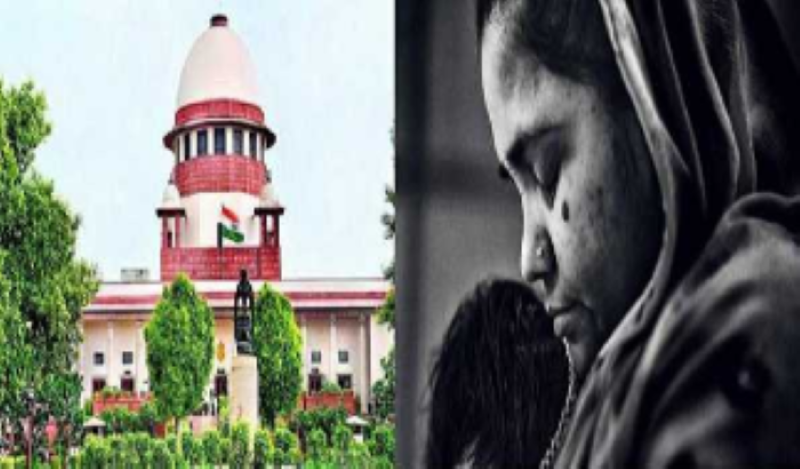Bilkis Bano case: Supreme Court agrees to constitute special bench for hearing

New Delhi/UNI: The Supreme Court on Tuesday agreed to constitute a special bench to hear the Bilkis Bano case and said it "will do so at the earliest."
Bano's lawyer fervently pleaded that Justice Ajay Rastogi is continuously sitting in combination of himself and justice Bela Trivedi, as a result of which, the matter couldn't be taken up for hearing.
Bilkis Bano, through her lawyer, Shobha Gupta, had filed the writ petition before the Supreme Court challenging the remission or premature release of 11 gang rape convicts.
Bilkis Bano had filed a writ petition after the Supreme Court had last year.
In March 2002 during the post-Godhra riots, Bano was allegedly gang-raped and left to die with 14 members of her family, including her three-year-old daughter.
She was five months pregnant when rioters attacked her family in Vadodara.
Shobha has mentioned the matter before the bench of the Supreme Court, headed by the Chief Justice of India (CJI) Dr Dhananjaya Yeshwant Chadrachud, who said that he will constitute a Special bench for it.
"I will do so at the earliest," the CJI led bench said, after hearing from Shobha.
The Supreme Court's December 13 three-page order, dismissed her review plea and said that we have perused the review petition as well as the connected papers in support thereof and the judgements referred to by the petitioner.
"In our opinion, there appears no error on the face of record, which may call for review of the judgement of May 13, 2022, and as regards the judgements in which the reliance has been placed, none of the judgements are any assistance to the review petitioner.
"In our opinion, no case is made out. The review petition is accordingly dismissed," the Supreme Court said, in its order on December 13.
The Supreme Court also had rejected Bilkis Bano's application for listing the matter for open Court hearing.
The Gujarat government had released the 11 convicts, who were sentenced to life imprisonment, on August 15.
All the 11 life-term convicts in the case were released as per the remission policy prevalent in Gujarat at the time of their conviction in 2008.




